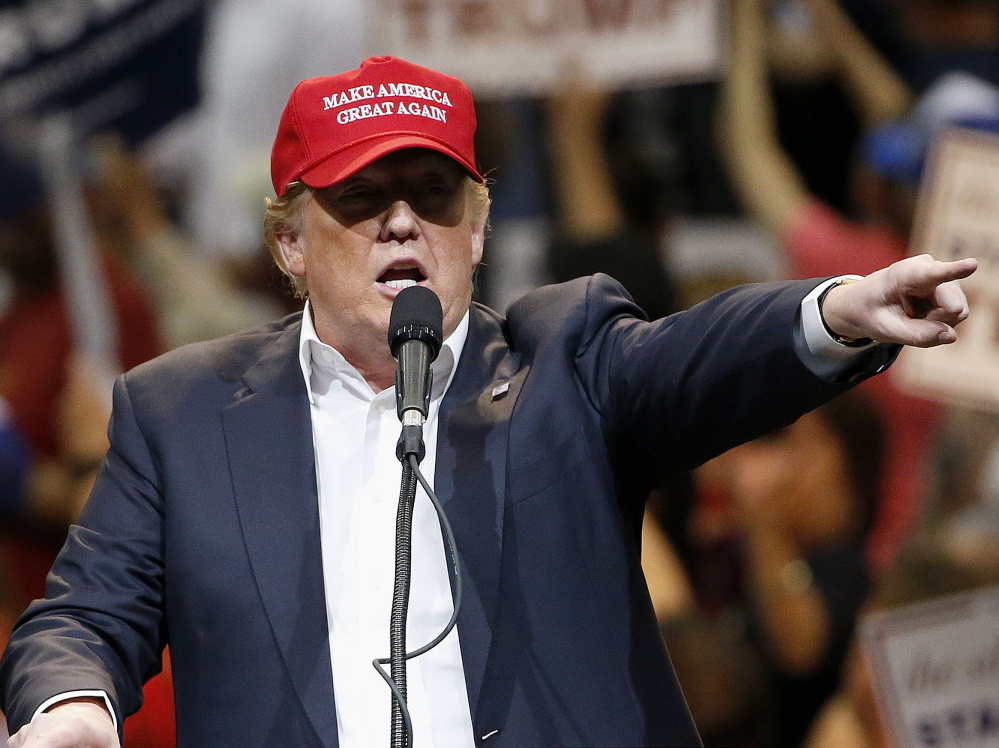WASHINGTON — As America’s leading pro-Israel group prepares to hear from nearly all the presidential candidates, most eyes in the audience of thousands will be on Republican front-runner Donald Trump.
He’s the wild card whose previous comments about Israel have created some anxiety among many who will attend the American Israel Public Affairs Committee policy conference this week in Washington.
Expect Republicans Ted Cruz and John Kasich to espouse standard conservative fare. Democrat Hillary Clinton probably will stick to well-known positions. Rival Bernie Sanders – trying to become the first Jewish candidate to win a major party’s presidential nomination – is skipping the event.
Much like the American electorate at large, the pro-Israel community in the United States is anything but monolithic, and this year’s conference appears to highlight those different constituencies, including socially liberal Democratic Jews, establishment Republican Jews and conservative evangelical Christians.
In a broad sense, all the candidates confirmed to speak Monday fall into one of those categories. Except Trump – and therein lies the angst.
“Trump has said a lot of things about Israel over the years, most of it favorable but some of it more ambiguous,” said Josh Block, a former committee official who now heads The Israel Project. “This will be an opportunity to address the ambiguity before a serious foreign policy audience.”
The American Israel Public Affairs Committee bills itself as nonpartisan and has never endorsed a candidate. Yet the organization has delved into highly partisan political debates over issues of interest to Israel, most recently and notably the Iran nuclear deal, which it vehemently opposed. In that, it is at odds with ardent deal supporters Clinton and Democrat Bernie Sanders, and to a certain degree, with Kasich, the lone Republican who has not said he would automatically rescind the pact.
Trump and Cruz have promised, if elected, to rip up the agreement. Beyond that, Cruz has pledged absolute support for Israel, but Trump has been far from clear on how he would approach matters of deep concern to pro-Israel voters.
Unlike Cruz, Trump has not said he would move the U.S. Embassy from Tel Aviv to Jerusalem, a perennial Republican campaign promise, and, unlike Cruz, he has said he will be neutral as a negotiator in trying to resolve the Israeli-Palestinian conflict. Cruz’s campaign website features an entire section on Israel; Trump’s does not address it at all.
On Mideast peace talks, Trump says: “You understand a lot of people have gone down in flames trying to make that deal. So I don’t want to say whose fault it is – I don’t think that helps.”
Clinton, meanwhile, has a long history in the Middle East, including overseeing as secretary of state the Obama administration’s first attempt to broker Israeli-Palestinian peace with former Sen. George Mitchell of Maine as envoy. Her stance against Jewish settlements on land claimed by the Palestinians has been criticized by some in the pro-Israel community.
Send questions/comments to the editors.


